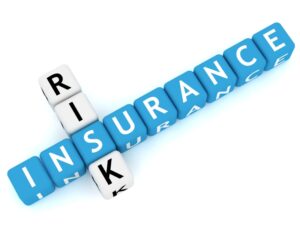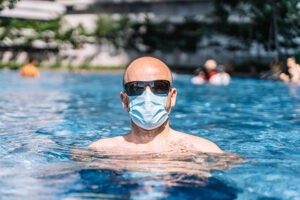Every year, workers are killed or seriously injured while performing snow or ice removal from rooftops and other building structures, such as decks. OSHA has investigated 16 such serious injuries or fatalities in the past 10 years – all of which could have been prevented.
Snow removal is performed for a number of reasons, such as to prevent overloading and collapse, or for construction or repair of decking or roofs. Often workers climb directly onto the roofs or structures and use equipment such as shovels, snow rakes, snow blowers, ladders, etc. Other times these operations may be performed from the ground level using snow rakes. Aerial lifts are sometimes used to access roofs and apply de-icing materials. Snow removal operations are often performed under extreme weather conditions (e.g., cold, high winds, icy surfaces). Workers who perform these activities (for example, building maintenance workers) may have little experience or training on the hazards of such operations or work.
Preventing Falls During Snow Removal
Working on a roof with snow, ice, or wind carries a risk of a fall onto the roof, or a fall off the roof to the ground below or through a snow-covered skylight, all of which are often fatal. Therefore, employers should protect their workers from these hazardous work conditions by:
- Using snow removal methods that do not involve workers going on roofs, when and where possible.
- Evaluating loads exerted on roof or structure (e.g., total weight of snow, workers and equipment used), compared to the load limit of the roofs.
- Requiring that workers use fall protection equipment.
- Ensuring that workers use ladders and aerial lifts safely.
Remove Snow Without Going on the Roof
Whenever possible, use methods to clear ice and snow without workers going on the roof. For example:
- Use ladders to apply de-icing materials.
- Use snow rakes or drag lines from the ground.
Use Ladders Safely
Workers may use ladders to access rooftops for snow removal. Workers should not use a snow
rake or shovel while on a ladder because this greatly increases the risk of losing one’s balance
and falling.
Avoiding Other Hazards
Exposure to cold can cause injury and illness in workers removing snow. Cold exposure can cause frostbite (freezing in the deep layers of skin and tissue) and hypothermia (drop of body temperature to less than 95 ̊F).
Physical exertion during snow removal can also cause injuries and illnesses. Snow removal can be strenuous, particularly because cold weather can be taxing on the body, and can create the potential for exhaustion, dehydration, back injuries, or heart attacks, and can increase the risk of falls.
For more information about snow removal safety, contact Klein Property Management at (732) 446-0611 or visit us at https://kleinpropertymanagement.com/




